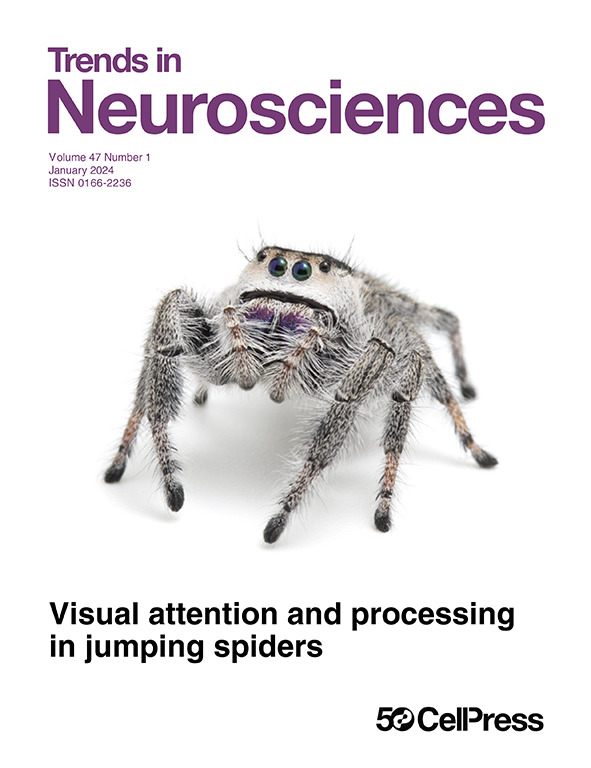TDP-43 nuclear condensation and neurodegenerative proteinopathies.
IF 14.6
1区 医学
Q1 NEUROSCIENCES
引用次数: 0
Abstract
RNA-binding proteins (RBPs) can undergo phase separation and form condensates, processes that, in turn, can be critical for their functionality. In a recent study, Huang, Ellis, and colleagues show that cellular stress can trigger transient alterations in nuclear TAR DNA-binding protein 43 (TDP-43), leading to changes crucial for proper neuronal function. These findings have implications for understanding neurological TDP-43 proteinopathies.
TDP-43 核凝聚与神经退行性蛋白病。
RNA 结合蛋白(RBPs)会发生相分离并形成凝聚物,而这一过程反过来又对其功能至关重要。在最近的一项研究中,Huang、Ellis 及其同事表明,细胞应激可引发核 TAR DNA 结合蛋白 43(TDP-43)的瞬时改变,从而导致对神经元正常功能至关重要的变化。这些发现对理解神经系统 TDP-43 蛋白病症具有重要意义。
本文章由计算机程序翻译,如有差异,请以英文原文为准。
求助全文
约1分钟内获得全文
求助全文
来源期刊

Trends in Neurosciences
医学-神经科学
CiteScore
26.50
自引率
1.30%
发文量
123
审稿时长
6-12 weeks
期刊介绍:
For over four decades, Trends in Neurosciences (TINS) has been a prominent source of inspiring reviews and commentaries across all disciplines of neuroscience. TINS is a monthly, peer-reviewed journal, and its articles are curated by the Editor and authored by leading researchers in their respective fields. The journal communicates exciting advances in brain research, serves as a voice for the global neuroscience community, and highlights the contribution of neuroscientific research to medicine and society.
 求助内容:
求助内容: 应助结果提醒方式:
应助结果提醒方式:


